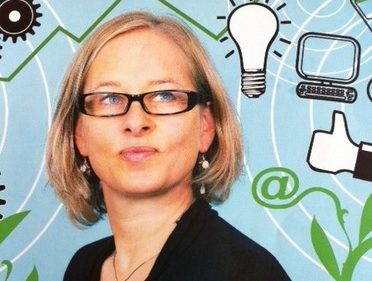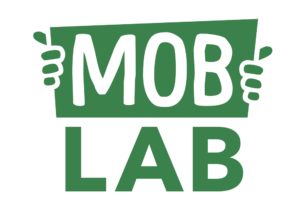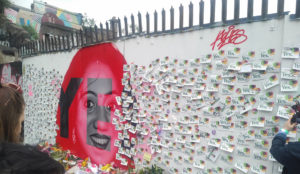We recently spoke with Inge Wallage, International Communications Director at Greenpeace, about global change and Greenpeace. Inge shared insights into communicating to empower people-powered change in a time of great transition.
How important is communication in creating change?
Communications are essential. A great campaign backed with studies and hard facts threatens to fail if it does not have an effective and emotive communications strategy.
What is the most concerning, yet inspiring issue for you at the moment?
The realisation that “We have won many victories, but we are losing the planet.”
This quote by Gus Speth from Yale University is both inspiring and scary to me. It illustrates that we need to go beyond campaigning as usual. As Greenpeace we realise this. We also realise that time is running out, so urgency is of the essence. We know that we need to move from incremental campaigning to transformational campaigning to get to fundamental change.
This inspires me as a communications professional in particular because Gus Speth also states that the ‘way to get people on board to really engage in the Great Transition to sustainability, it requires more than scientists and policy experts.’ To him we live in the age of psychologists, poets and philosophers. This is where communications and mobilisation come into play. It means that we have a very fascinating, yet challenging time ahead of us in which we set up and work our campaigns.
How does this impact communications?
It changes communications in the sense that we need to somehow declare that we do not have all the answers and solutions for the future and that we won’t get there alone.
We are talking about a huge transformation of extremely complex systems characterised by a high degree of uncertainty. This requires experimentation and the exploration of new questions. The task is huge and we cannot do this on our own. Acknowledging this offers the possibility to ask questions, to explore new theories of change, to test and try new ways of working, and to find answers and solutions for a better future together.
This is all quite vague to me, when you speak of change and transformation, what do you mean? What is the desired outcome of all this, and how do you hope to get there?
We live in very uncertain times and I’m sure many people think about what the future will look like. I think everyone knows things are going to have to change. This may happen through force, war and destruction: This is called the Great Disruption. And some actually believe we have already entered that phase.
There is another possibility to sustainable change that is more desirable however: If we work together and differently we can work the change in a peaceful way, what we call ‘towards the Great Transition.’
What is the Great Transition?
The Great Transition is a vision created in 2002 by the Global Scenario Group of how humanity could create a civilisation that reflects egalitarian social and ecological values, affirms diversity, and defeats poverty, war, and environmental destruction. The elements of the Great Transition vision are increased human interconnectedness, improved quality of life, and a healthy planet.
Basically, in order to live in balance, we need to get to this Great Transition with environmental and social justice. The Great Transition will require a cultural transformation away from today’s consumerism and nationalism and towards a culture of wellbeing with simpler living and a sense of planetary identity as well as deep structural economic change where markets and the rationale of the ‘homo economics’ play a far less dominant role than today.
So you think that Greenpeace must start working towards this Great Transition. Are there others who subscribe to this vision as well?
I think that increasingly leaders in civil society across the world are subscribing to the vision of the Great Transition – including Greenpeace. The Great Transition is similar to our long-term view of how we see the world. However, all these organisations have their individual theories of change as how to get there.
In the ‘Smart CSOs’ umbrella organisation, all change agents gathered realise that we cannot get to the Great Transition on our own. We need to get there by working together and in different, experimental ways. The Smart CSOs Lab is the platform for a network of civil society organisation (CSO) leaders, funders and researchers aiming to build effective CSO strategies for the‘Great Transition’. We as Greenpeace are one of the partners in Smart CSOs.
What inspires you most in the Smart CSOs approach?
All the leverage points that are highlighted to get to change are sound, I believe. I especially believe in working with the radical change makers that are creating/experimenting with new economic models in which progress is readdressed, i.e. finding ways to achieve human well-being without continuous material growth. I also believe in working new campaigns in non-linear ways, as that will allow us to come up with alternative ways of creating change.
However, I guess what inspires me most right now is the leverage point of the new narrative, which is so related to communications. Our current campaign narratives often confirm current societal behaviour and systems. So the communications challenge we have is to come up with new stories that tap into the old stories that are starting to break and are not making sense anymore. If we identify some of these powerful new stories we can effectively create the cultural change so necessary for bigger political shifts.
What have the results been so far and do you have any examples to illustrate this change?
Smart CSOs Lab got established just over a year ago as a result of a conference on the Great Transition. We realised then that we needed to keep our momentum and do more than attend conferences where we are inspired by working change differently, but then we all leave and go back to our default mechanisms.
Smart CSOs aims to stimulate all contributors to continue the experimental route for new strategies. What is a clear result so far is that the framework and ideas of Smart CSOs have prompted many organisations across Europe to rethink their current strategies. For example, in CONCORD, the umbrella organisation of 1,800 European Development NGOs, a strategic process has started that builds on the Smart CSOs leverage points.
But if we are talking about real external impact, this will of course take time. This is part of the characteristics of systemic change. We need to focus more on the deeper long term change and sacrifice some of the short term tactics that ultimately often don’t have the desired impact.
The best example of how we are moving forward with this in Greenpeace is the Toxics / Detox campaign. This time around our approach to this campaign acknowledges the challenge of not stimulating consumerist behaviour in the way we roll out our campaign.
Last year the campaign was aimed at changing aspects of the way clothes are made and demanding transformational change in the way brands’ supply chains are managed, but not at decreasing the consumption of clothes necessarily. This year the latter is part of what we are communicating, though subtly, steering people towards slow fashion using different language, asking appropriate questions and equipping people with the tools and knowledge to bring about transformational change in their own lives (such as “clothes swapping party” kits as part of our volunteer outreach).
I find myself able to take different approaches within our preparation meetings due to what I took away from the workshops the Smart CSOs Lab put together, such as on systemic change and cultural transformation. There are certainly many ways in which we can work the Smart CSOs approach into various Greenpeace campaigns. And we have to realise, if we really want to be one of the driving forces of a deeper transformation, we need to continue to learn and, therefore, to test and try.
What do you see as being the main challenge in the future of these projects?
First of all, skeptics challenge us; this Smart CSOs set-up can be conceived as a distraction of what Greenpeace is (traditionally) good at. We also believe we are already in many similar kind of engagements. There may be some truth in this. And actually, I think, these are all valuable platforms/organisations where civil society comes together to learn and build capacity.
However, Smart CSOs is distinct as it is fully focused on the question of how we can become better in pushing systemic change. It provides us with an opportunity to explore different ways of creating change, exploring different theories of change and in particular look at ‘early pipeline campaigning.’ Furthermore, it delivers an opportunity to work with change-agents outside of our organisation. It would be good to smarten up our campaigns, and it is safe to say this cannot hurt us, we can only benefit from it.
One of the main threats to individuals inside established civil society organisations, is this feeling of helplessness. It also means that people fall back into doing what they are good at, so the default mechanisms. Or when people feel they can’t create sufficient transformational change, they take a step back and choose not to participate at all.
We must find ways to work differently. And, for me in particular, to communicate that it will be much harder in the future, so we need to start now. We don’t want to look back and realise that we didn’t try. This is where I think the Smart CSOs Lab delivers a really different way forward, forward to the Great Transition: our world with human connectedness, quality of life and a healthy planet.
Categories:
narrative, framing and storytelling



